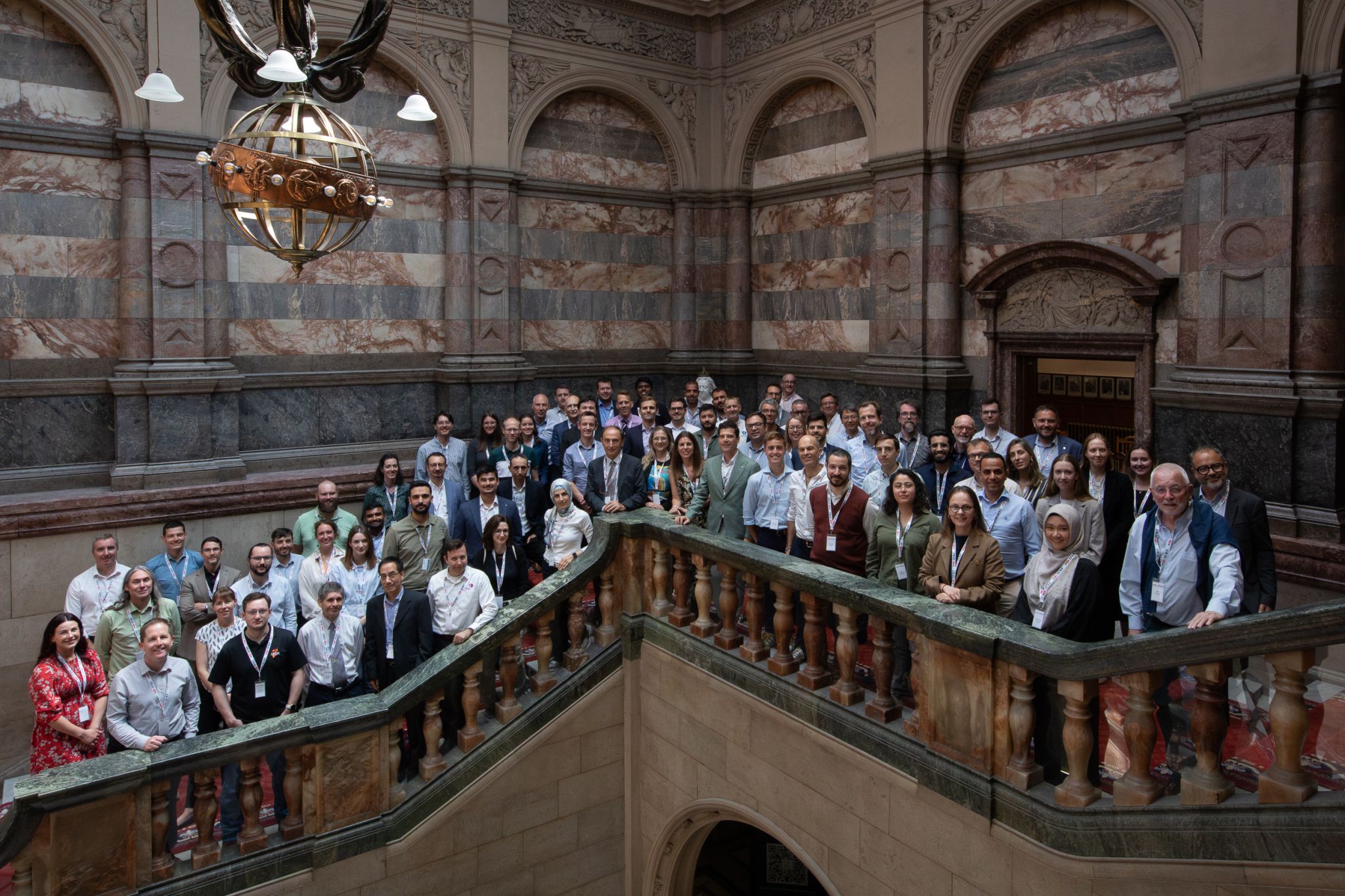From 17 to 19 June 2025, the 20th International Flame Research Foundation (IFRF) Conference took place in Sheffield (UK). The theme of the conference was ‘Sustainable and Safe Industrial Combustion’. The Twinghy project was proudly represented by Sébastien Caillat (Fives Stein), Johannes Losacker (Department of Industrial Furnaces and Heat Engineering at RWTH Aachen University) and Anna Domènech (Celsa).
Founded in 1948, the IFRF unites experts from the entire industrial combustion community. This conference brought together researchers, furnace manufacturers, equipment and gas suppliers, and steel producers to share knowledge and ideas about the future of industrial combustion in relation to sustainability and decarbonisation.
Johannes Losacker, researcher in the IOB-RWTH Aachen University, presented the Twinghy project during a session focusing on demonstrator projects for decarbonising high-temperature processes. His presentation shared key insights into the design of combustion equipment and its impact on product quality and process efficiency, as well as emissions. In addition to his talk, Johannes contributed to the poster session, sparking numerous engaging discussions with industry experts and researchers.

Sébastien Caillat, Combustion Chief Expert at Fives Stein, presented a poster titled ‘New Lateral Burner for 0 to 100% Hydrogen Flexibility in Steel Reheating Furnaces’. This highlighted the development of hybrid burners for reheating furnaces in rolling mills — a significant technical accomplishment of the Twinghy project. His insights helped to connect the project’s technical innovations with the practical needs of industry, encouraging collaboration and dialogue across multiple sectors.

The project was also featured in the keynote presentation by Anna Domènech, Head of Innovation at Celsa, who discussed the strategy of the Celsa Group for producing green steel, further emphasising the project’s importance for the decarbonisation of the steel industry.

The presence of Twinghy at the IFRF 2025 Conference not only showcased the project’s technical progress but also reinforced its role in shaping the future of low-carbon, high-temperature industrial processes. The valuable exchanges during the event will help drive innovation and strengthen collaboration as the project moves closer to delivering practical solutions for a more sustainable industry.
